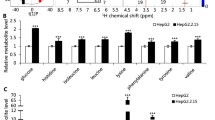Abstract
Background and objective
Glucose metabolism disorders including insulin resistance (IR) and type 2 diabetes are frequent and important cofactors of chronic hepatitis C (CHC). Silent information regulator 1 (SIRT1) plays a key role in the regulation of hepatic glucose metabolism. We investigated the possible effect of HCV replication on glucose metabolism of hepatocytes and expression of SIRT1 using Huh-7.5 cells harboring the HCV replicon.
Methods
The level of reactive oxygen species (ROS) and value of NAD+/NADH and ATP/ADP were detected. Glucose uptake by hepatocytes and glucose production were measured. The activity and expression levels of SIRT1 and expression of its downstream glucose-metabolism genes were measured.
Results
In replicon cells, the level of ROS increased and the value of nicotinamide adenine dinucleotide (NAD+)/NADH decreased, then the activity and expression level of mRNA and protein of SIRT1 decreased. Inhibition of SIRT1 not only increased insulin receptor substrate-1 phosphorylation and decreased Akt phosphorylation, inhibited cell surface expression of glucose transporter 2 and suppressed cellular glucose uptake, but it also decreased phosphorylation of forkhead box O1, then upregulated phosphoenolpyruvate carboxykinase and glucose 6-phosphatase genes and downregulated the glucokinase gene, thus promoting glucose production. Interferon treatment restored the aforementioned changes. SIRT1 activator improved glucose metabolism disorders by an increase in glucose uptake and a decrease in glucose production, and it inhibited HCV replication.
Conclusions
HCV replication decreasing the NAD+/NADH ratio may downregulate the activity and expression of SIRT1, then change the expression profile of glucose metabolism-related genes, thereby causing glucose metabolism disorders of hepatocytes and promoting HCV replication. Treatment with SIRT1 activator improves glucose metabolic disorders and inhibits HCV replication, suggesting that restoration of SIRT1 activity may be a promising new therapeutic approach for CHC patients with IR.













Similar content being viewed by others
References
Jian Wu Y, Shu Chen L, Gui Qiang W. Effects of fatty liver and related factors on the efficacy of combination antiviral therapy in patients with chronic hepatitis C. Liver Int. 2006;26:166–172
Yu JW, Sun LJ, Zhao YH, Kang P, Yan BZ. The effect of metformin on the efficacy of antiviral therapy in patients with genotype 1 chronic hepatitis C and insulin resistance. Int J Infect Dis. 2012;16:e436–e441
Wang T, Campbell RV, Yi MK, Lemon SM, Weinman SA. Role of hepatitis C virus core protein in viral-induced mitochondrial dysfunction. J Viral Hepat. 2010;17:784–793
Miyamoto H, Moriishi K, Moriya K, Murata S, Tanaka K, Suzuki T, et al. Involvement of the PA28 gamma-dependent pathway in insulin resistance induced by hepatitis C virus core protein. J Virol. 2007;81:1727–1735
Milne JC, Lambert PD, Schenk S, Carney DP, Smith JJ, Gagne DJ, et al. Small molecule activators of SIRT1 as therapeutics for the treatment of type 2 diabetes. Nature. 2007;450:712–716
Yoshizaki T, Milne JC, Imamura T, Schenk S, Sonoda N, Babendure JL, et al. SIRT1 exerts anti-inflammatory effects and improves insulin sensitivity in adipocytes. Mol Cell Biol. 2009;29:1363–1374
Erion DM, Yonemitsu S, Nie Y, Nagai Y, Gillum MP, Hsiao JJ, et al. SirT1 knockdown in liver decreases basal hepatic glucose production and increases hepatic insulin responsiveness in diabetic rats. Proc Natl Acad Sci USA. 2009;106:11288–11293
Tardif KD, Waris G, Siddiqui A. Hepatitis C virus, ER stress, and oxidative stress. Trends Microbiol. 2005;13:159–163
Kobayashi Y, Furukawa-Hibi Y, Chen C, Horio Y, Isobe K, Ikeda K, et al. SIRT 1 is critical regulator of FOXO-mediated transcription in response to oxidative stress. Int J Mol Med. 2005;16:237–423
Sauve AA, Schramm VL. Sir2 regulation by nicotinamide results from switching between base exchange and deacetylation chemistry. Biochemistry. 2003;42:9249–9256
Puigserver P, Rhee J, Donovan J, Walkey CJ, Yoon JC, Oriente F, et al. Insulin-regulated hepatic gluconeogenesis through FOXO1-PGC-1alpha interaction. Nature. 2003;423:550–555
Nakashima K, Takeuchi K, Chihara K, Hotta H, Sada K. Inhibition of hepatitis C virus replication through adenosine monophosphate-activated protein kinase-dependent and independent pathways. Microbiol Immunol. 2011;55:774–782
Bujanda L, García-Barcina M, Gutiérrez-de Juan V, Bidaurrazaga J, de Luco MF, de Gutiérrez-Stampa M, et al. Effect of resveratrol on alcohol-induced mortality and liver lesions in mice. BMC Gastroenterol. 2006;6:35
Sener G, Toklu HZ, Sehirli AO, Velioğlu-Oğünç A, Cetinel S, Gedik N. Protective effects of resveratrol against acetaminophen-induced toxicity in mice. Hepatol Res. 2006;35:62–68
Ahn J, Cho I, Kim S, Kwon D, Ha T. Dietary resveratrol alters lipid metabolism-related gene expression of mice on an atherogenic diet. J Hepatol. 2008;49:1019–1028
Jiang L, Gu Y, Ye J, Liu F, Zhao Y, Wang C, et al. Resveratrol prevents hepatic steatosis induced by hepatitis C virus core protein. Biotechnol Lett. 2012;34:2205–2212
Docherty JJ, Sweet TJ, Bailey E, Faith SA, Booth T. Resveratrol inhibition of varicella-zoster virus replication in vitro. Antiviral Res. 2006;72:171–177
Evers DL, Wang X, Huong SM, Huang DY, Huang ES. 3,4′,5-Trihydroxy-trans-stilbene (resveratrol) inhibits human cytomegalovirus replication and virus-induced cellular signaling. Antiviral Res. 2004;63:85–95
Acknowledgements
This study was supported in part by a grant from the Science and Technology Research Foundation of the Department of Education, Heilongjiang Province, China (No. 11541158).
Conflict of interest
No benefits in any form have been received or will be received from a commercial party related directly or indirectly to the subject of this article.
Ethical approval
Not needed.
Author information
Authors and Affiliations
Corresponding author
Rights and permissions
About this article
Cite this article
Yu, JW., Sun, LJ., Zhao, YH. et al. Inhibition of silent information regulator 1 induces glucose metabolism disorders of hepatocytes and enhances hepatitis C virus replication. Hepatol Int 7, 524–532 (2013). https://doi.org/10.1007/s12072-013-9420-9
Received:
Accepted:
Published:
Issue Date:
DOI: https://doi.org/10.1007/s12072-013-9420-9




